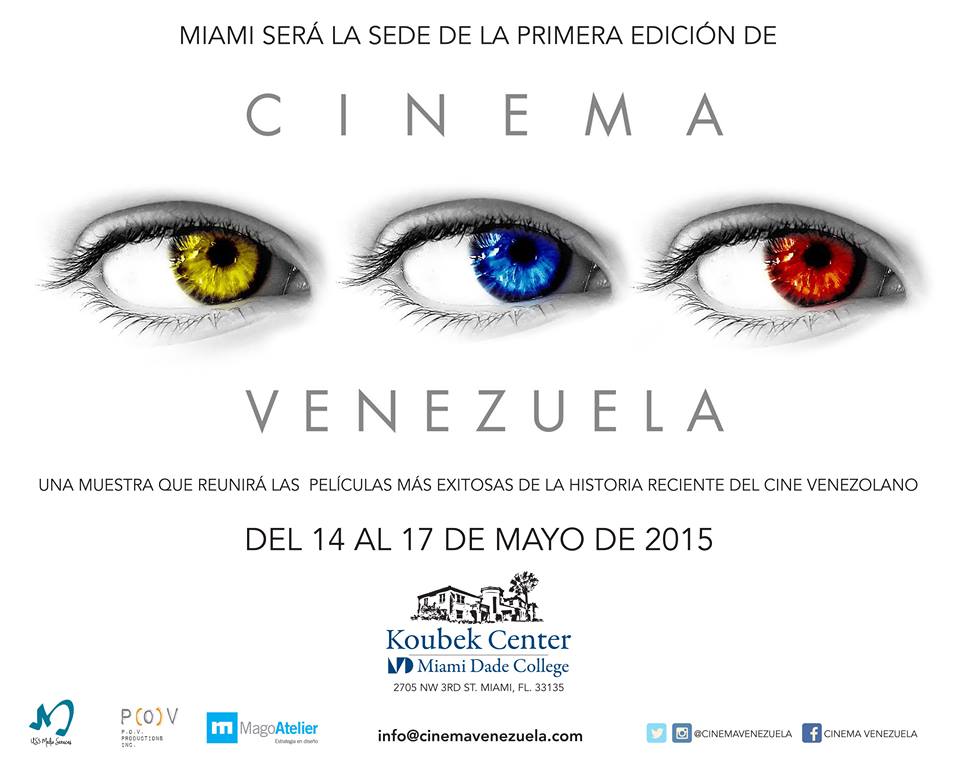In Miami, since May 14th, the first edition of Cinema Venezuela film festival has been in progress. A fine selection of eight films out of forty produced last year by Venezuelan filmmakers for the Venezuelan market has been showcased in this event. We have had opportunity to see three of these in the festival and one on demand, and the quality of these is unmistakable.
Venezuela filmmaking has a long and uneven tradition. It first made its mark in the world back in the fifties when the adaptation of a short story by a great Venezuelan writer, La Balandra Isabel Llegó esta Tarde by Guillermo Meneses a precursor of magical realism, won the 1951 Directing Regard Prize (cinematography) in Cannes. For this year’s Oscars a Venezuelan film, The Liberator (not shown in this festival), made it to the short list of nine nominees for Best Foreign Language Film. In between those two points the Venezuelan film industry has made its mark with presence in renown festivals and awards throughout the world, from Russia, to France, Spain and Colombia. Notable works in Venezuelan film are Araya, Soy un Delincuente, El Pez que Fuma, Oriana, and Secuestro Express, among others.
The movies presented in Cinema Venezuela are of extreme high technical quality and range many topics. From the “why can’t we all get along” message of the romantic comedy “Papita, Maní, Toston” – a Romeo and Juliet story with a Fever Pitch twist set in an idealized social environment, and which has been the most seen Venezuelan movie ever in its market – to the poignant and moving “La Distancia más Larga” which presents a stark contrast between the savage realism of urban life and the peaceful idealism of the Grand Savannah, one of the largest national parks in the world and its Tepui formations, which inspired HG Wells’ The Lost World. A spectacular movie about transformation and right-to-die with an outstanding performance by Carme Elías and a breakthrough role for the young actor Omar Moya.
Liz in September, the festival’s opening title, is a beautiful film set in an idyllic tropical beach setting. Gorgeous photography frames a semi tragic love story of self-discovery and assisted suicide. Pelo Malo (available on demand) and Azul y No tan Rosa (My Straight Son) were presented on the second night. The first is a story which highlights the hardships of being poor, possibly gay and seduced by the commercial imagery of pop culture. The second one we missed, but also available on demand, is the winner for Best Iberoamerican Film at the 2014 Goya Awards.
We look forward to the concluding three-film marathon of this festival tonight, which includes Dos de Trébol, Nena Salúdame al Diego, and Esclavos de Dios–and to the second edition, next year. Congratulations to the organizers and sponsors.
CJ Rangel – May 2015
All images and linked content copyright their respective owners.


